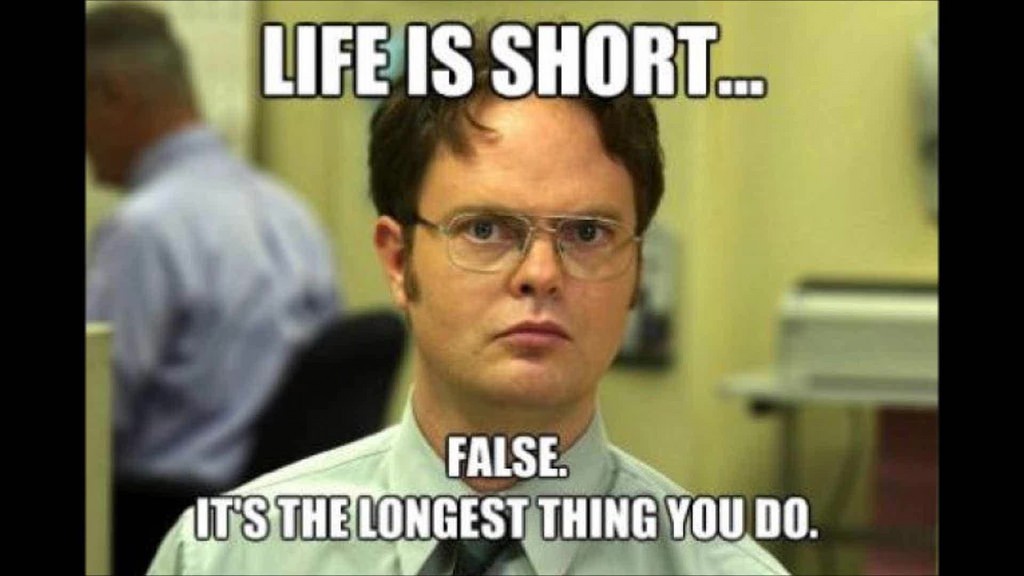The Most Obnoxious Things You Can Do in a Work Meeting
Meetings shouldn’t be terrible. They offer a chance to collaborate as a team and make the key decisions that’ll move your company forward.
And yet, so many meetings are unproductive. Why?
Because people ruin them. They act in ways that kill any chance of productivity or collaboration.
What are those behaviors that are particularly destructive to a meeting? In his LinkedIn Learning course Common Meeting Problems, Instructor Chris Croft listed these nine:
1. People who talk wayyyy too much.
These people aren’t domineering (we’ll get to them later). They just love to talk. And talk. And talk.
No matter what the topic.
Most of the time, they will bring something up that's moderately related to the point. But then it’ll drift into their own personal tales about this and that, miles away from relevancy. All while productivity flies out the window.
2. People who go on and on, once they get started.
This is more nuanced than the first person in that they don’t always talk a lot. It’s just that when they do get on a topic, their knuckles get tired from beating their point to death.
It generally starts with a good point they make. Excited by their good point, they repeat it in different words. And then they repeat it again, again in slightly different words. And then someone else says something and they are quiet for a minute, only to once again redirect the conversation to their point.
And again, productivity flies out the window.
3. People who dominate the meeting.
Another version of talking too much, with this one stemming from over-confidence and low trust of others. These are people who need to control every item said and make every decision.
What these people are, most likely unintentionally, is bullies and collaboration killers.
4. People who are always negative.
These people don’t even have to say anything. They’ll sit in the meeting with their arms crossed, occasionally scoffing or rolling their eyes at what’s being said.
When you do call on them or they do talk, they rarely provide a solution. Instead, they just give a host of reasons why the proposed solution absolutely won’t work.
Not exactly a path to innovation.
5. People who attack other people’s ideas.
Even worse and more aggressive. Perhaps they just lack awareness, but these are people who criticize other people’s ideas to the point people start keeping their ideas to themselves.
Often, these people are just contrarians, as opposed to anything more malicious. Regardless, whereas the negative merely wound innovation, these people kill it.
6. People who speak in jargon.
These are nice people. They mean well. But nobody knows what they are saying.
It could just be that they speak in such jargon, the rest of the team doesn’t understand them. They might have so much expertise in a particular field, it’s difficult for them to speak with people who have none.
Or, they could just be bad communicators, and have trouble making their point. Unfortunately, they make meetings more confusing, and their good ideas don't get acted on.
7. People who show up to meetings unprepared.
Good meetings should have agendas, with action items set beforehand and a pre-read. And yet, so many people come to meetings having not completed their assigned action items or having not done the pre-reading. Or, they just have done no thinking on the topic what-so-ever.
This results in either the group having to skip the topic, because there’s no data on it. Or, the meeting leader has to spend 10 minutes summarizing what the pre-read said. Or, the decision isn’t made, because people are just now considering the options.
All three are unproductive outcomes.
8. People who are always late or don’t show up at all.
There are some people who are always late to meetings. Along with wasting time, it sends the signal that their time is more valuable than everybody else’s.
And then there are people who straight up miss meetings. Often, this is due to a lack of organization. Again, this just wastes time, as the meeting has to either be rescheduled or their section skipped over.
9. People who never speak their mind.
At face value, this person is harmless, right? They are perfectly polite. They just don’t ever speak. Or, if they do speak, they don't speak their mind.
A good meeting leader should do their best to include them. But it’s also incumbent on that person stepping up and making their voice heard. Otherwise, what’s the point of going to the meeting at all?
The point is, if the meeting was structured correctly, the person was invited to the meeting for a reason. If they don’t share their thoughts, they can’t fulfill whatever that reason is, and the group suffers becauses of that.
The takeaway
These are all destructive behaviors that make meetings less productive. And yet, if we are being honest with ourselves, we probably have exhibited some – if not all – of them at one time or another.
That’s okay, it’s part of life. But, by being aware of these behaviors and the negative effects of them, you should be able to curb them moving forward.
It’s time to make meetings more productive. Learn how by watching the LinkedIn Learning course, Leading Productive Meetings.
Topics: Productivity tips
Related articles




